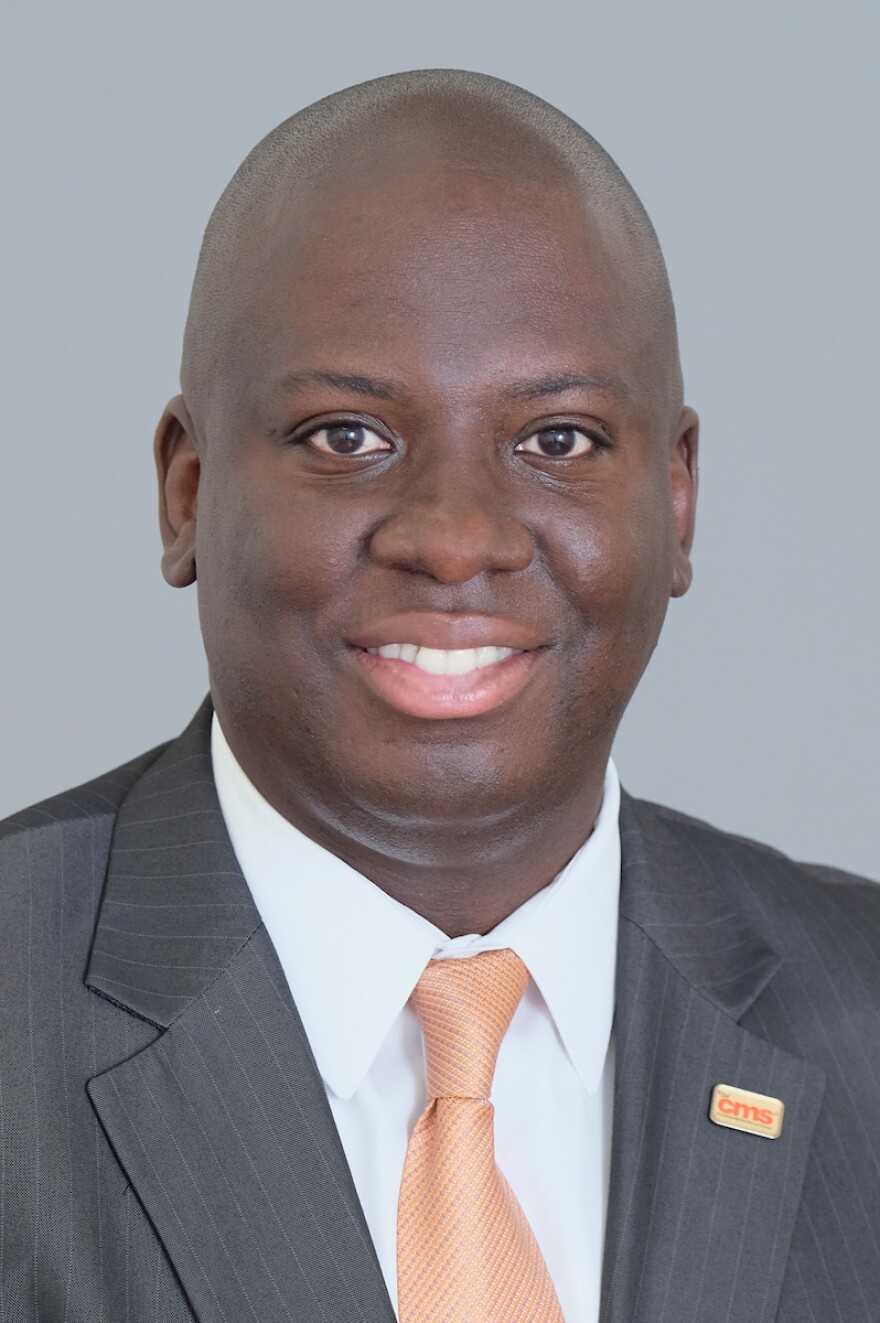Most school districts don't have an ombudsman to handle complaints. But CMS got its first one this month. Earnest Winston says he sees his role as a way to provide families with the information they need in order to be "empowered and engaged." His hiring has drawn controversy.
The superintendent didn't post the ombudsman position, which comes with a salary of $175,000, before giving it to Winston - and, unlike many districts, Winston reports to the superintendent, not the board of education.
How Winston Sees His Job
Winston say his job is to make sure CMS is "responsive and addresses concerns in a timely matter." That
includes handling complaints, helping people navigate CMS's bureaucracy, and answering simple questions too. "I serve as a resource, a conduit to help provide families with the information they need in order to be empowered and engaged."
Part of his job, he says, is to make recommendations to the superintendent on how the district itself needs to change. "To the extent that I can look at the data and identify trends that may exist, I can and will be expected to make recommendations for district improvement."
Reporting to the superintendent
Winston says that makes sense so far as he won't have to deal with department heads who may be on the defensive. "Being a direct report to the superintendent, I have his ear and can share information with him as I see necessary."
Does the job of ombudsman include acting as a spokesman?
"No, we have a very top-notch communications team and we have a new chief of staff in the district. And I would see that they would actually serve in that capacity."
Building trust
"I would like to think in my thirteen years in CMS, fifteen years as a resident of this community, that I have taken the time to intentionally build relationships with people that I think will be beneficial in this role. But also you build trust by listening. It's going to be extremely important that I listen to understand and that I be responsive. I also want to make sure we're reaching out to all segments of the community and not just one side of town."
Most Districts Structure Ombudsman Job Differently To Give More Independence
CMS Superintendent Clayton Wilcox hired Winston saying he has "a tremendous reputation for being neutral." Winston came to CMS in 2004 as a teacher and quickly moved to administration. Since 2012, he’s served as the superintendent’s chief of staff. Wilcox says the idea to hire an ombudsman was “percolating” before he even came here.

“People worry that there will be retaliation against their children or them personally, so we thought it best to establish a place for neutral ground where you can come and learn how to access the system and maybe have some hand-holding as you walk through it,” said Wilcox.
Neutral is a word used to describe an ombudsman, regardless of where they work. Many government departments have ombudsmen, but it’s not common among school districts, says Robin Matsunaga, President of the US Ombudsman Association.
Their duties can vary a lot by location. But they all try to resolve complaints against school systems that have stalemated at other levels. The complaints mainly involve discipline, transportation and student disability needs. Matsunaga says the common thread is supposed to be impartiality, something he questions with how Winston’s position is structured since Winston reports to the superintendent.
“I think I’d question whether I’d get a fair investigation of a complaint if I’d complain to the current ombudsman because of his ties to the superintendent,” Matsunaga said. “If the people you serve aren’t convinced that you are independent and impartial, they’re not going to use you because they will see you as another part of the bureaucracy that they are complaining about.”
According to Matsunaga, most school ombudsman report to the board of education, allowing for some separation. That’s the case for the ombudsman for Washington, DC’s public schools. Joyanna Smith’s office is even housed in the board’s offices.
“The independence we have is important,” Smith said. “We focus on student learning and problems parents face as they navigate the public system. We try to be mindful in things we engage in publicly and what we talk about publicly. I don’t work for the superintendent and I don’t have to follow any agenda put out there by any system.”
Smith said she never would have done one thing that Winston did early on as ombudsman. He acted as spokesman with the press in defending Wilcox hiring his chief of staff’s husband Jody Francisco. It was a new, un-posted position of culinary manager, at a salary of $85,000 dollars. When Francisco was asked questions by reporters, Winston quickly stepped in and answered for him until press members insisted that they wanted to hear from Francisco.
Ombudsman isn’t Winston’s only job. He’s also the district’s chief of community engagement. In Montgomery County, Maryland the ombudsman also holds two positions. Roland Ikheloa is appointed by the school board and he’s also the board’s chief of staff. Ikheloa says the dual role doesn’t pose a conflict of interest, but says, “I am the lead ombudsman and there are two others who perform the ombudsman function, so if I felt there was a conflict, I would give it to one of those folks.”
Superintendent Wilcox says Winston will use other staff in his office as well to resolve complaints. He calls the ombudsman position "a baby step" toward making the district more open and transparent. Wilcox says they are looking at how other school districts’ ombudsmen operate, so the duties and structure of the job could change.




